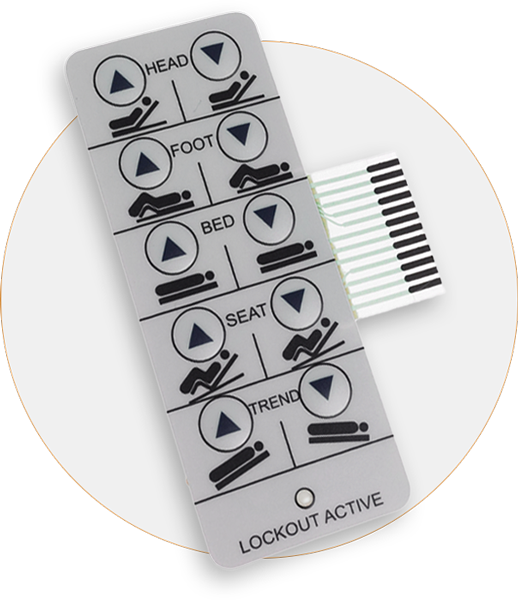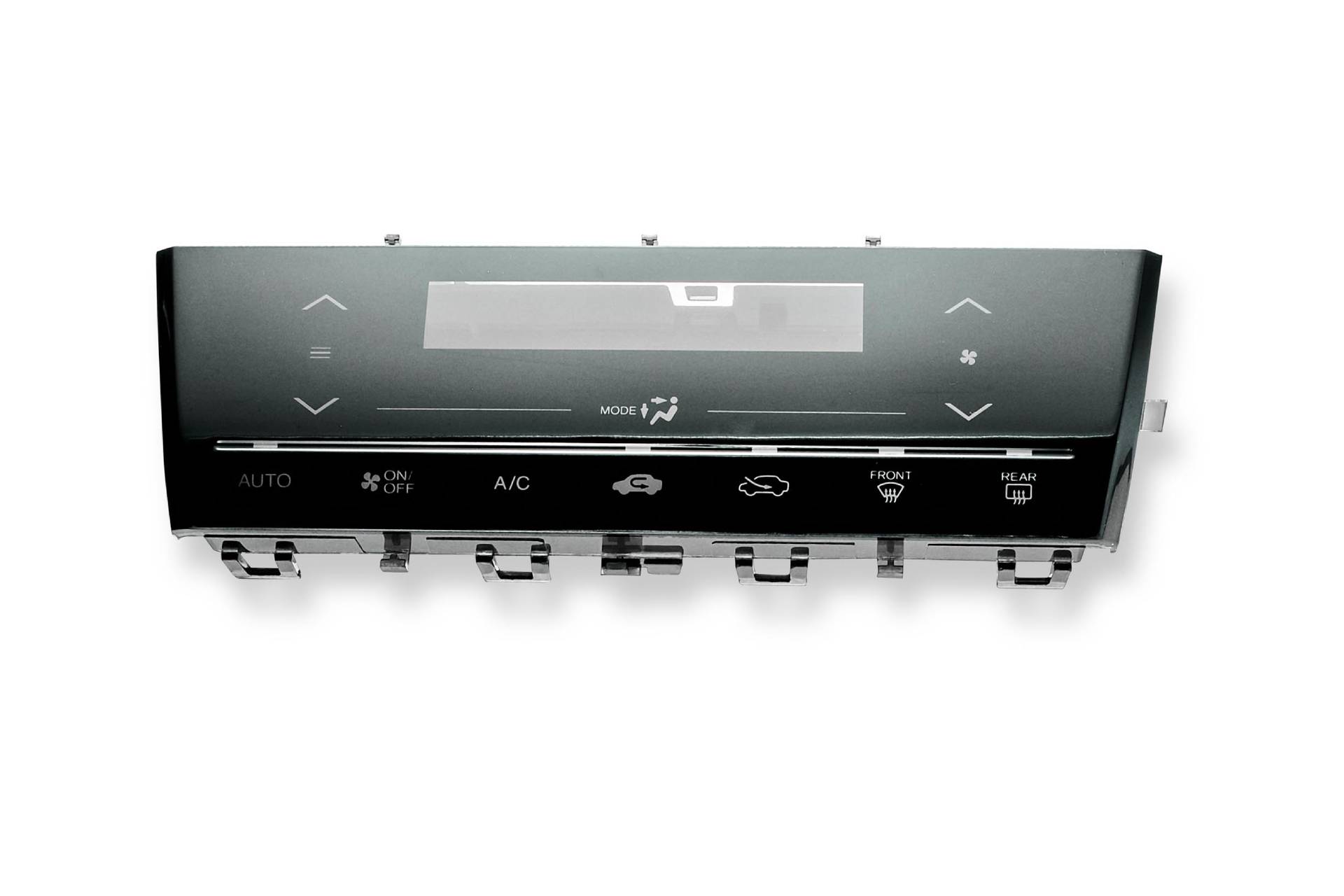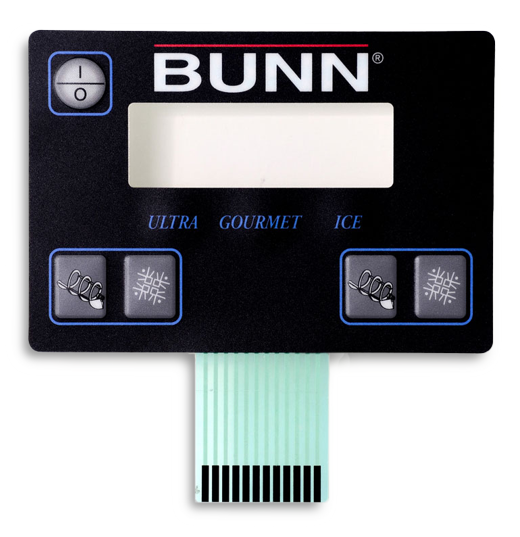Comprehending the Importance of Membrane Switch in Modern Electronics and Their Applications
Membrane switches function as a necessary component in modern-day electronic devices, supplying an effective user interface for customer interaction. Their adjustable and lightweight nature makes them suitable for a variety of applications throughout varied markets. Understanding their crucial components and advantages can supply understandings into their expanding relevance. As technology remains to advance, the development of Membrane switches over raises questions regarding their future applications and style technologies. What exists ahead in this dynamic field?

What Are Membrane Switches?
Membrane switches are vital components in modern-day electronic devices, working as interface that promote communication between customers and devices. These buttons consist of numerous layers, including a graphic overlay, a glue layer, and a circuit layer, all of which job together to create a functional and sturdy interface. The layout permits a level, inconspicuous remedy that can be tailored concerning dimension, shape, and visual look, making them appropriate for numerous applications, from customer electronics to clinical tools. The tactile responses provided by Membrane changes enhances customer experience, while their resistance to dust and wetness makes them suitable for challenging settings. Moreover, Membrane buttons can include features such as backlighting and printed graphics, additionally broadening their usability. Their versatility and toughness make them a preferred option in sectors where reliability and simplicity of usage are critical, inevitably contributing to the seamless operation of contemporary digital devices.
Secret Elements of Membrane Switches
While various elements add to the functionality of a membrane switch, three key layers play substantial functions in its style and procedure. The leading layer, generally made from a resilient polymer, works as the user interface for user interaction, typically including published graphics and icons. Beneath this is the spacer layer, which maintains the required distance between the top layer and the circuit layer. This spacer layer assurances that the switch triggers only when pressed, stopping unintended inputs. The circuit layer contains conductive traces that finish the electric circuit when the leading layer is dispirited. These traces can be made from different materials, including copper or silver. Together, these components develop a durable and trusted gadget that is small and versatile, suitable for a large range of electronic applications, from home appliances to medical tools. Recognizing these crucial elements is vital for appreciating the total performance of Membrane switches.
Advantages of Making Use Of Membrane Changes

Membrane Switch Production Process
Comprehending the Membrane switch production procedure exposes the elaborate actions associated with generating these necessary elements. The procedure normally begins with the layout phase, where specs and layouts are developed utilizing specialized software program. Following this, the graphic overlay is printed on a flexible substrate, usually utilizing high-resolution printing strategies to assure quality and precision.Next, the glue layers are used, which offer to bond the numerous components together. The circuit layers, made from conductive inks or products, are then printed onto a different substrate. These layers are thoroughly lined up and laminated to create a useful switch.After assembly, the switches undertake testing to validate performance and longevity. Quality assurance steps are executed throughout the procedure to determine and correct any kind of flaws. Ultimately, the finished Membrane buttons are packaged and planned for distribution, all set to meet the needs of modern digital applications.
Applications of Membrane Switches in Various Industries
Membrane switches are increasingly made use of throughout different industries, especially in medical devices and consumer electronics. In the clinical field, they provide dependable control user interfaces for devices that need specific procedure. Similarly, in consumer electronic devices, these switches improve customer interaction by using receptive and streamlined interfaces.
Medical Equipment Control
Many modern-day clinical tools utilize Membrane buttons for structured procedure and boosted user interaction. These switches give a reputable, sturdy user interface for a selection of applications, including diagnostic equipment, client tracking systems, and medical tools. Their personalized layouts permit for specific layouts that can accommodate the distinct needs of health care experts, making sure user-friendly navigation and effective access to necessary functions. Furthermore, Membrane switches are resistant to impurities, making them ideal for clean and sterile settings. The responsive comments they provide can improve user self-confidence, lowering the threat of errors during vital clinical treatments. Generally, the combination of Membrane buttons in medical equipment greatly adds to enhanced operational performance and person security in healthcare setups.
Customer Electronics Interfaces
In the domain name of consumer electronic devices, Membrane switches play a crucial duty in improving interface throughout a wide array of gadgets. These switches are indispensable to products such as remotes, microwaves, and video gaming consoles, providing a reliable and user-friendly user interface. anchor Their layout enables a seamless assimilation of graphics and functionality, enabling manufacturers to produce sleek, contemporary aesthetic appeals without jeopardizing functionality. Membrane switches are additionally known my review here for their durability, commonly enduring substantial use and direct exposure to various environmental problems. Additionally, they can integrate functions like backlighting and responsive feedback, additional boosting the user experience. As customer demands for advanced yet user-friendly user interfaces expand, Membrane switches remain to be a crucial component beforehand electronic gadget capability.
Layout Considerations for Membrane Changes
Creating reliable Membrane switches over calls for mindful focus to various elements that affect both performance and customer experience. One essential factor to consider is the selection of products, as they can influence durability, tactile feedback, and aesthetic appeal. Selecting an ideal adhesive is essential for guaranteeing long-term attachment and resistance to environmental factors.In addition, the layout and layout of the button have to suit individual interaction, with button sizes and spacing optimized for ease of usage. The unification of graphics and labeling need to focus on clearness and visibility under numerous lights conditions.Consideration of electrical features, such as actuation pressure and button level of sensitivity, will certainly improve the responsiveness of the Membrane switch. The layout must accommodate producing procedures to ensure cost-effectiveness and prompt manufacturing. On the whole, a well-thought-out design boosts both the performance and the customer experience of Membrane switches in modern-day electronics.

Future Patterns in Membrane Switch Innovation
As innovation continues to develop, Membrane buttons are poised to incorporate brand-new developments that will boost their functionality and application in numerous areas. One substantial pattern is the unification of flexible and durable products, which will certainly increase the life expectancy and reliability of these switches. Enhanced surface area textures and personalized graphics are also expected, enabling even more intuitive individual interfaces.Moreover, the combination of wise technology, such as touch-sensitive surfaces and haptic comments, is anticipated to improve user communication, making Membrane switches a lot more receptive and engaging. In addition, breakthroughs in printed electronics will certainly allow much more intricate wiring within thinner profiles, better expanding design possibilities.Sustainability will certainly additionally play a vital function in future developments, as manufacturers check out green products and manufacturing processes. Overall, these patterns will certainly assure that Membrane changes continue to be appropriate and important in a increasingly electronic and interconnected globe.
Regularly Asked Inquiries
How Do Membrane Changes Contrast to Typical Mechanical Buttons?
Membrane changes deal advantages over standard mechanical switches, consisting of check it out minimized dimension, lighter weight, and boosted durability. They usually offer a sealed surface area, improving resistance to dust and dampness, making them ideal for varied applications.
What Products Are Frequently Made Use Of in Membrane Switch Construction?

Can Membrane Switches Over Withstand Extreme Environmental Conditions?
Membrane buttons can withstand extreme environmental conditions, relying on their layout and materials. High-grade constructions typically feature sturdiness versus temperature level fluctuations, moisture, and direct exposure to chemicals, making them ideal for various requiring applications across markets.
How Much Time Do Membrane Switches Over Typically Last Before Failure?
Membrane switches generally display a life-span ranging from 1 to 10 million actuations, relying on factors such as use frequency, environmental conditions, and making high quality. Normal maintenance can prolong their durability and operational reliability significantly.
Are Membrane Switches Over Adjustable for Particular Applications?
Membrane switches are certainly customizable for certain applications. They can be customized in dimension, performance, and layout, enabling manufacturers to fulfill distinct customer requirements and improve item aesthetic appeals while maintaining operational effectiveness and resilience. Membrane buttons are essential elements in modern-day electronic devices, serving as individual interfaces that promote interaction between individuals and gadgets. The responsive feedback offered by Membrane changes boosts customer experience, while their resistance to dirt and moisture makes them optimal for testing settings. The incorporation of graphics and labeling should prioritize clarity and exposure under different illumination conditions.Consideration of electric attributes, such as actuation pressure and button level of sensitivity, will certainly boost the responsiveness of the Membrane button. Boosted surface area structures and adjustable graphics are likewise expected, enabling for more user-friendly customer interfaces.Moreover, the integration of smart technology, such as touch-sensitive surface areas and haptic responses, is anticipated to enhance individual interaction, making Membrane switches over extra engaging and receptive. Membrane changes offer benefits over typical mechanical buttons, including reduced dimension, lighter weight, and boosted longevity.
Comments on “Experienced Membrane Switch Manufacturer for Complex Projects”